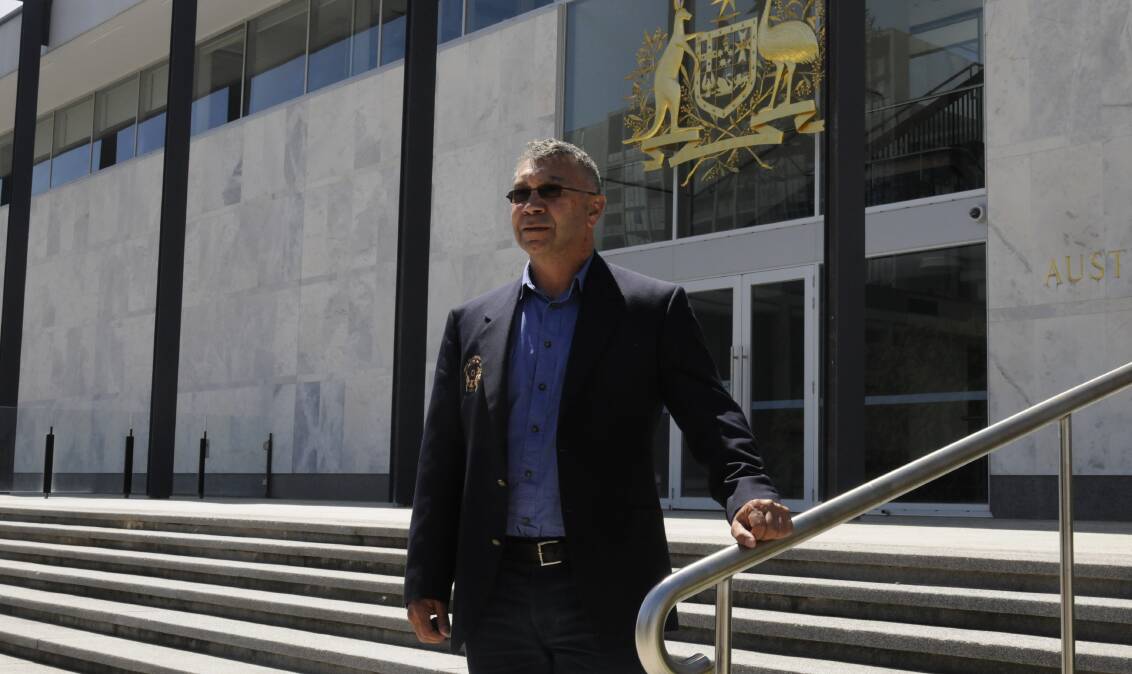
Court proceedings have begun for Ngambri custodians to have recognition as traditional owners of Canberra, as lawyers for the United Ngunnawal Elders Council argue they should also be a part of future proceedings.
Paul Girrawah House and other members of the Ngambri filed a claim in the ACT Supreme Court earlier this year for the ACT government to stop its "blatant" discrimination and hypocrisy.
The case came before the court for the first time on Friday, as Mr House said outside court that "our rights have been breached ... our right to maintain control and share and be ourselves. It's really about giving respect".
"It's also about truth telling. Truth telling is very important and the voice of our people," he said.
Under the "one tribe policy" from the ACT government, Ngunnawal people are stated as the only traditional custodians.
This not only prevents Ngambri custodians having recognition as traditional owners, it also restricts them from other rights such as giving welcomes to country or being on certain executive boards.
Mr House argued this goes against section 27 of the territory's Human Rights Act, which states Aboriginal and Torres Strait Islander peoples hold "distinct cultural rights" and must not be denied the right of connection to land under traditional laws and customs.
On Friday, Annie Arnott, representing the United Ngunnawal Elders Council, argued before the ACT Supreme Court for the council to also be applicants to the proceedings moving forward.
Mrs Arnott asked for an adjournment of the hearing to further consult with her client on details of the role they would play in the proceedings.
The barrister representing Mr House and other members of the Ngambri people, Brodie Buckland, opposed the suggestion as his client did not seek to "detract from the human rights" of the Ngunnawal custodians.
"The persons who wish to be known as traditional custodians should be allowed to do so and the government shouldn't be allowed to dictate who is and isn't," Mr Buckland said.
Mr Buckland also argued allowing Ngunnawal custodians to be a part of the case could be "conducive of a great amount of lateral violence".
"You'll have people in the witness box slinging mud at each other saying you're not a real Aboriginal person," Mr Buckland said.
Chief Justice Lucy McCallum acknowledged "there was going to be tensions" and the "colonial court" would require some lateral thinking.
"If one voice was excluded I'm concerned the determination of the court wouldn't have the integrity it needs to resolve this issue at all," Justice McCallum said.
"It already feels uncomfortable, I'll be blunt about it ... if I could put it this way as the white chick in the room ... I'm going to do my level best to make this a robust and inclusive process."
Mr Buckland conceded it may serve his clients if Ngunnawal custodians were involved as it could give further legitimacy to the outcome.
Justice McCallum told Mrs Arnott she needed to "work out who the applicant is" and gave the matter two weeks before it is brought back on November 18.







